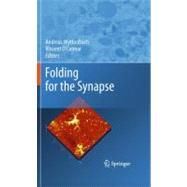
Note: Supplemental materials are not guaranteed with Rental or Used book purchases.
Purchase Benefits
What is included with this book?
| Folding for the Synapse | p. 1 |
| The Regulation of Protein (mis)folding, Aggregation and Degradation of Proteins by Molecular Chaperones | |
| Protein Aggregation: Opposing Effects of Chaperones and Crowding | p. 9 |
| Molecular Chaperones as Facilitators of Protein Degradation | p. 35 |
| The Small Heat-Shock Proteins: Cellular Functions and Mutations Causing Neurodegeneration | p. 49 |
| The Making of the Synapse: Transport of Proteins, Vesicles and Organelles | |
| Keeping it Together. Axonal Transport to the Synapse and the Effects of Molecular Chaperones in Health and Disease | p. 81 |
| Mechanisms of Neuronal Mitochondrial Transport | p. 105 |
| Chaperone Modalities and Homeostatic Mechanisms in the Synaptic Compartment | |
| Molecular Chaperones in the Mammalian Brain: Regional Distribution, Cellular Compartmentalization and Synaptic Interactions | p. 123 |
| Cysteine-String Protein's Role at Synapses | p. 145 |
| The Role of Protein SUMOylation in Neuronal Function | p. 177 |
| The Ubiquitin-Proteasome System in Synapses | p. 201 |
| Chronic Neurodegeneration Associated with Protein Misfolding and Synaptic Dysfunction | |
| VAPB Aggregates and Neurodegeneration | p. 215 |
| Synaptic Dysfunction in Huntington's Disease | p. 233 |
| Synaptic Dysfunction in Parkinson's Disease: From Protein Misfolding to Functional Alterations | p. 257 |
| Synapses and Alzheimers's Disease: Effect of Immunotherapy? | p. 269 |
| Prion Protein Misfolding at the Synapse | p. 289 |
| Index | p. 313 |
| Table of Contents provided by Ingram. All Rights Reserved. |
The New copy of this book will include any supplemental materials advertised. Please check the title of the book to determine if it should include any access cards, study guides, lab manuals, CDs, etc.
The Used, Rental and eBook copies of this book are not guaranteed to include any supplemental materials. Typically, only the book itself is included. This is true even if the title states it includes any access cards, study guides, lab manuals, CDs, etc.